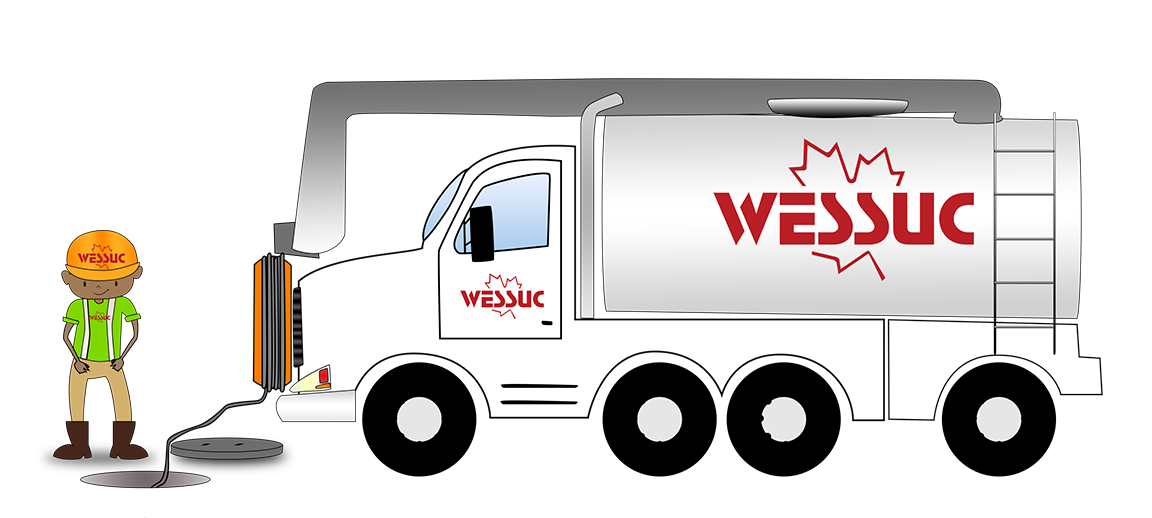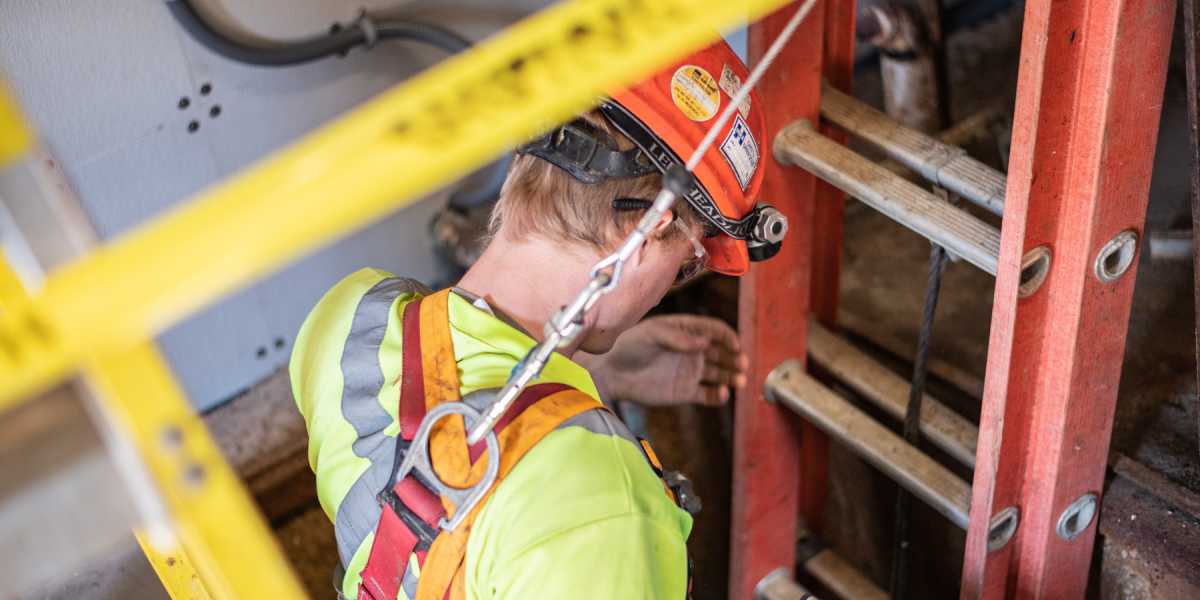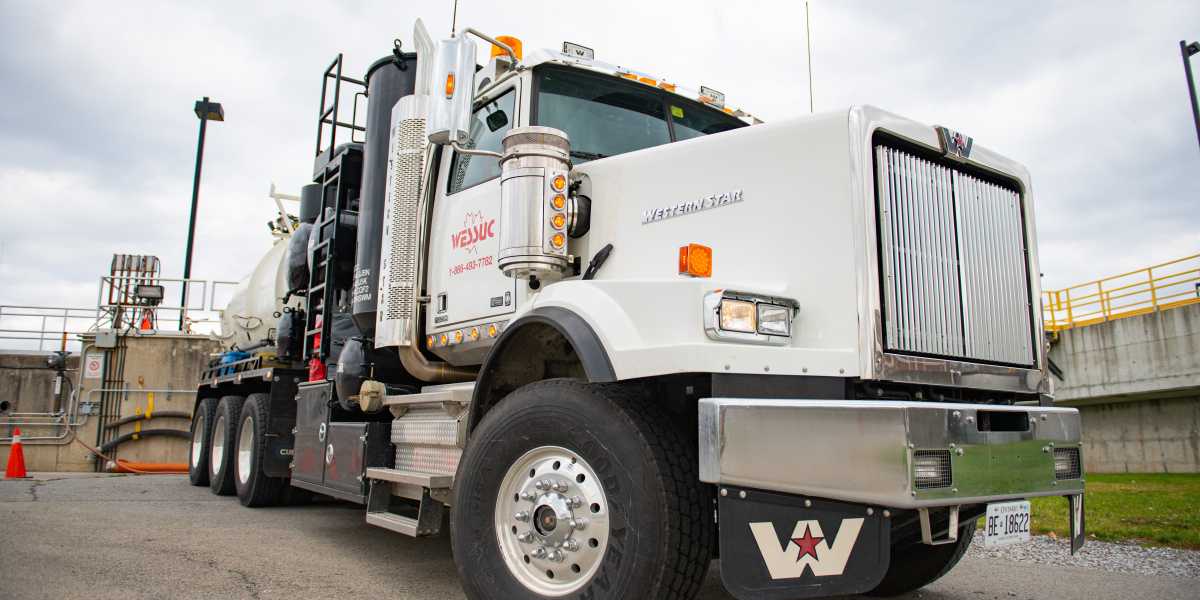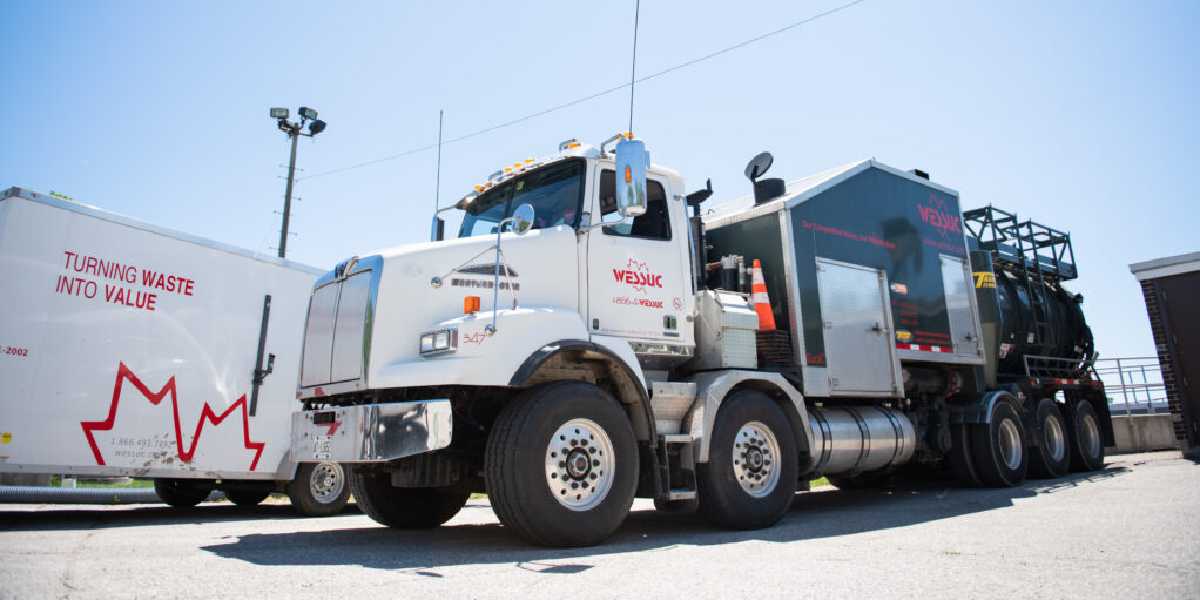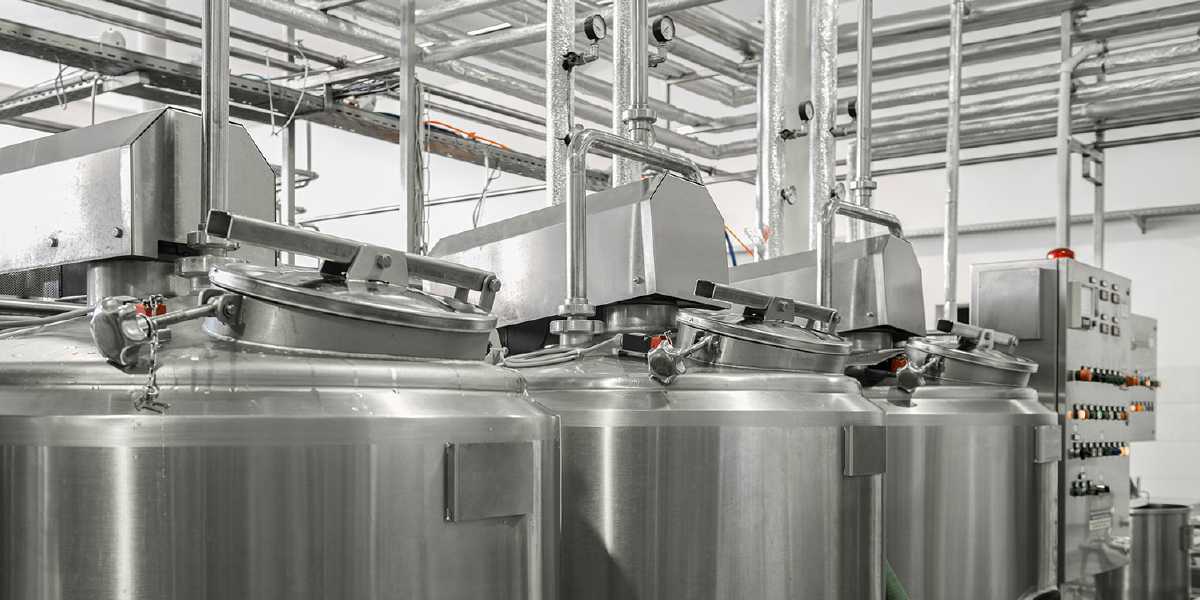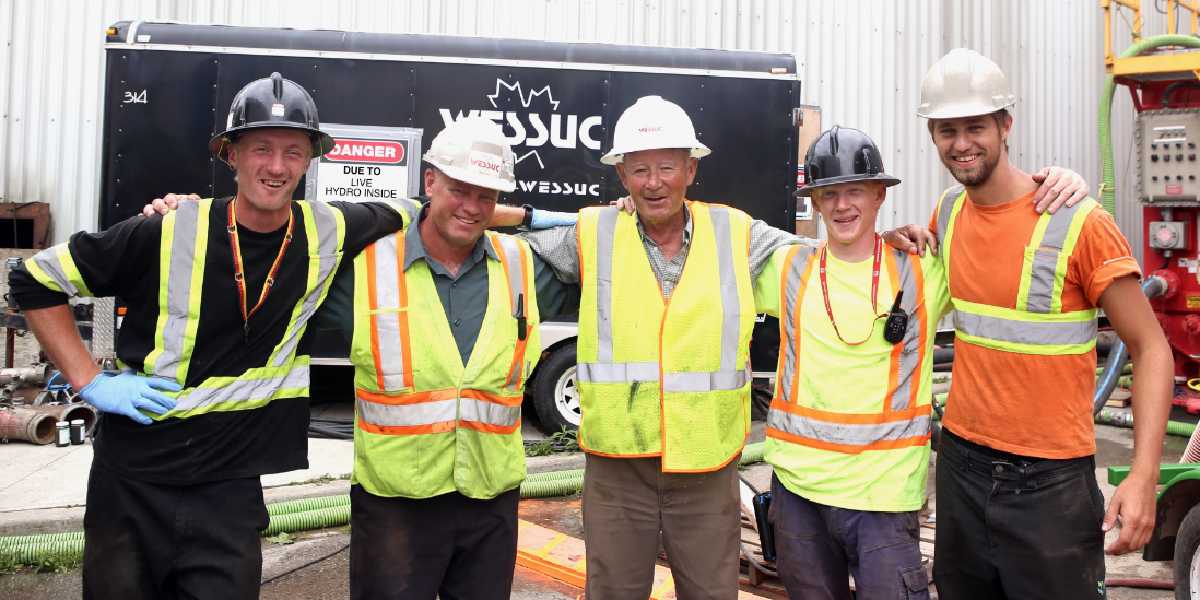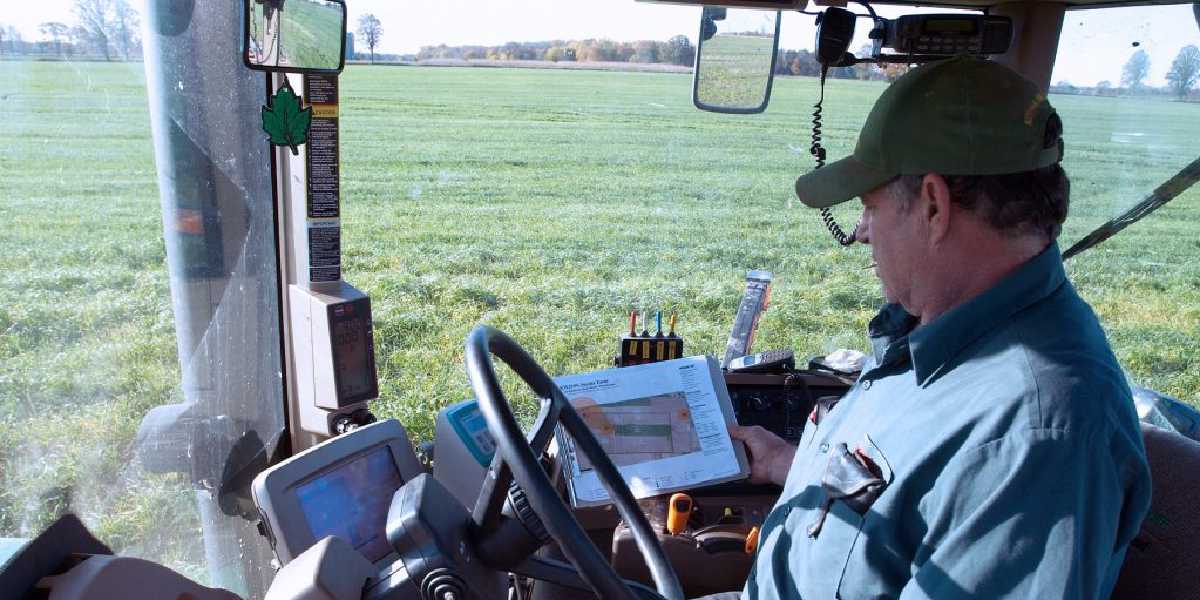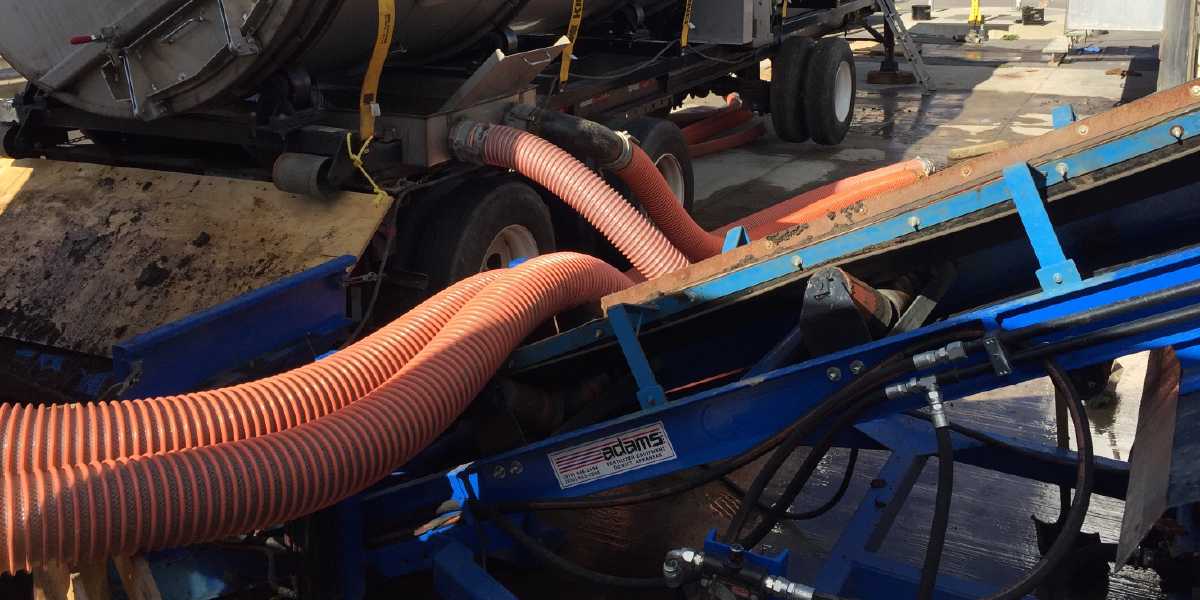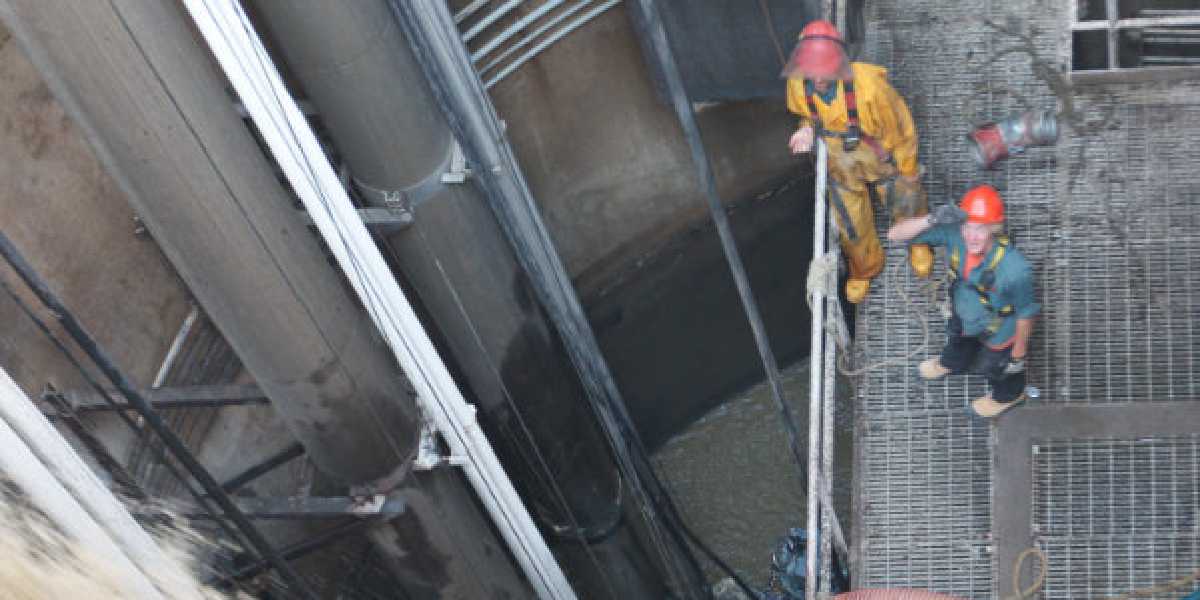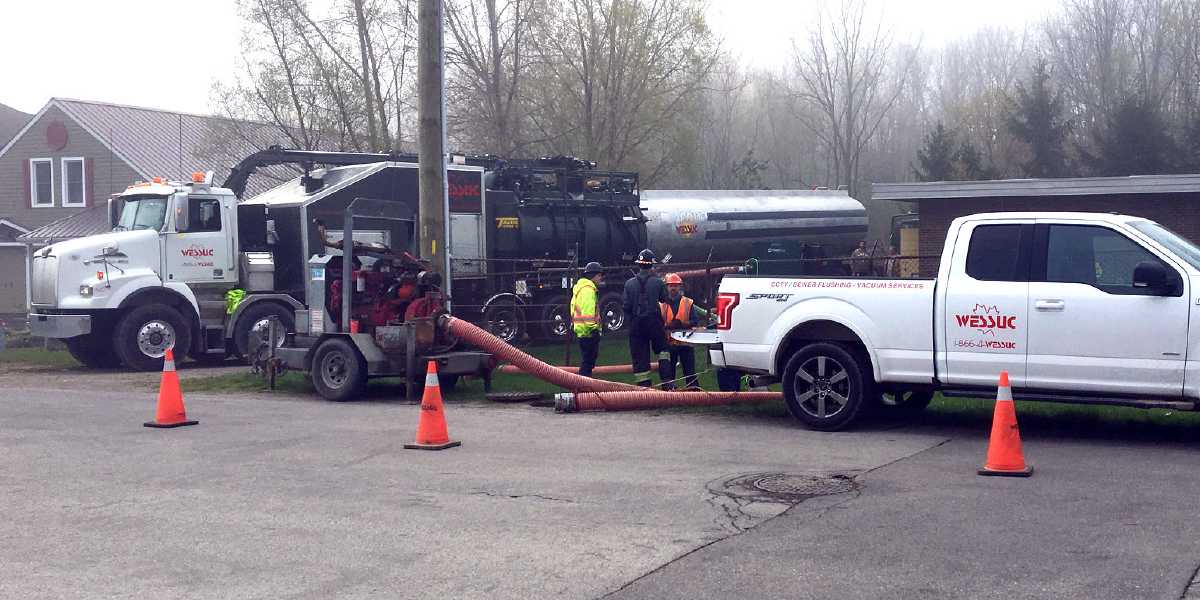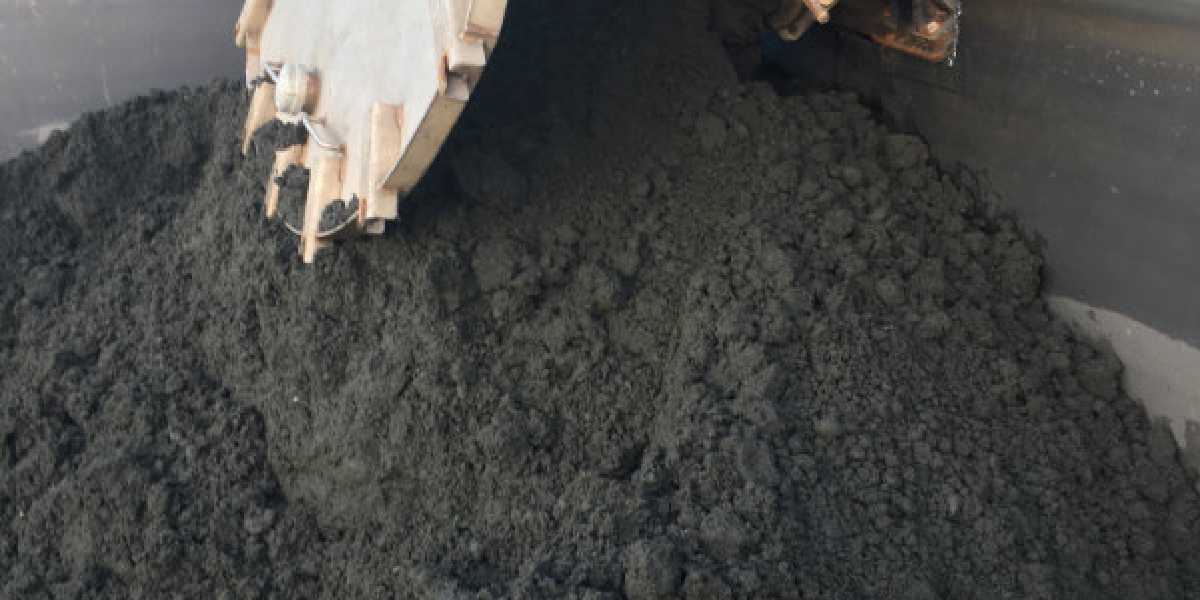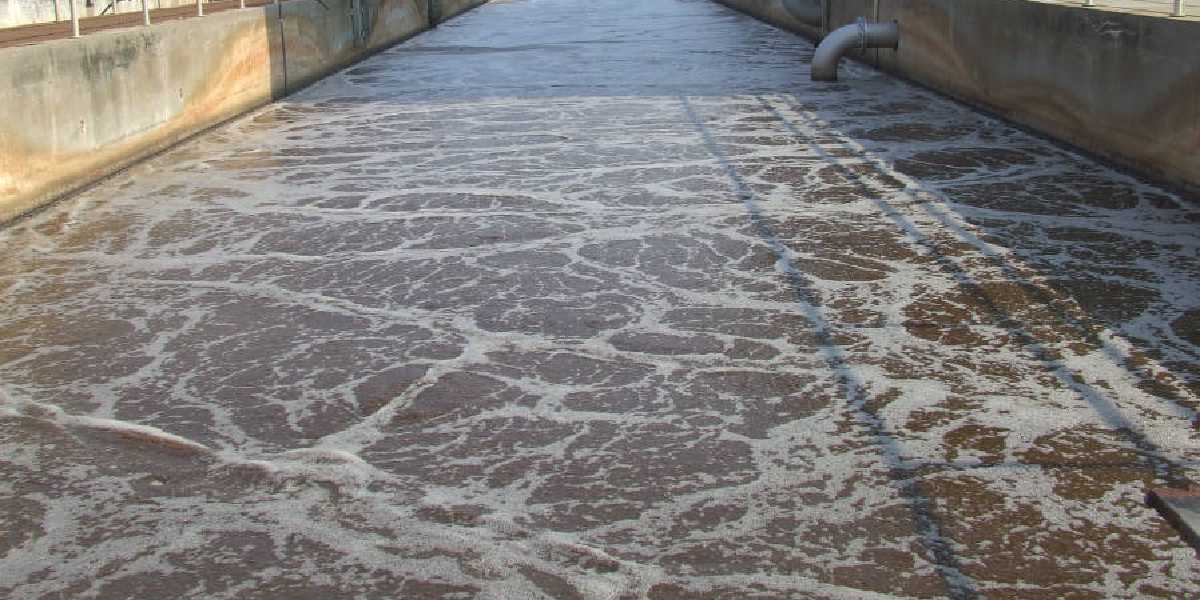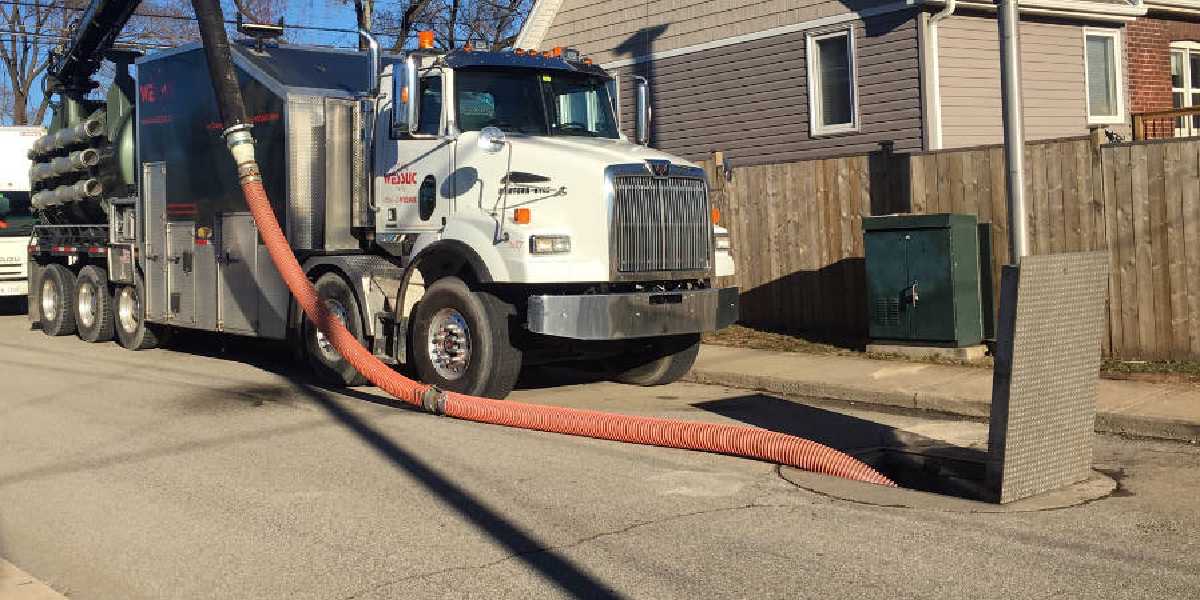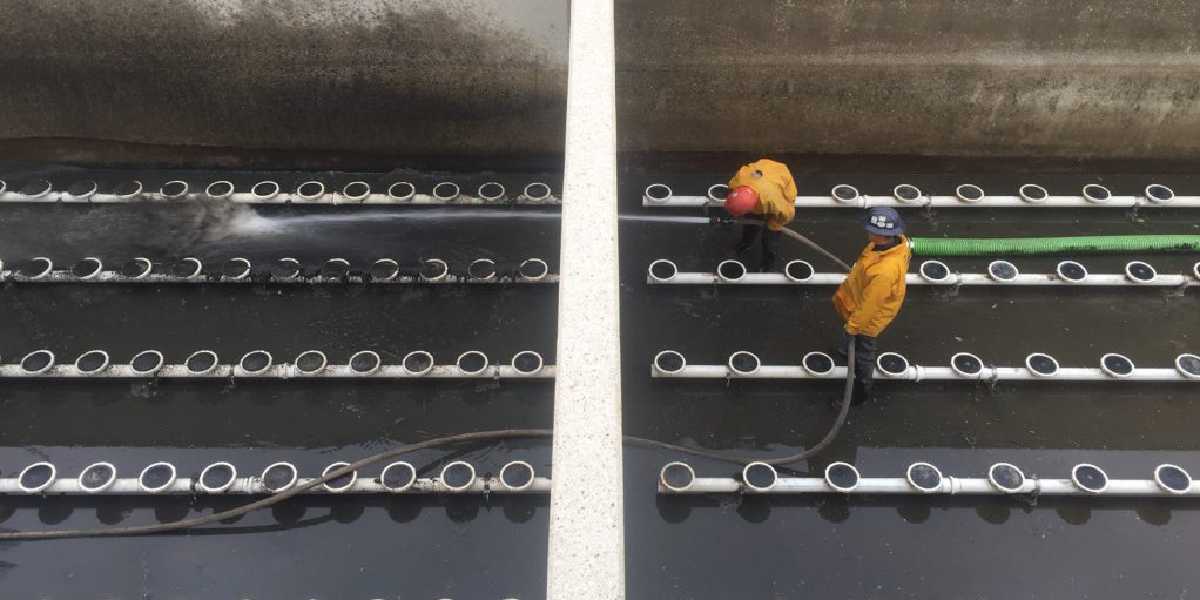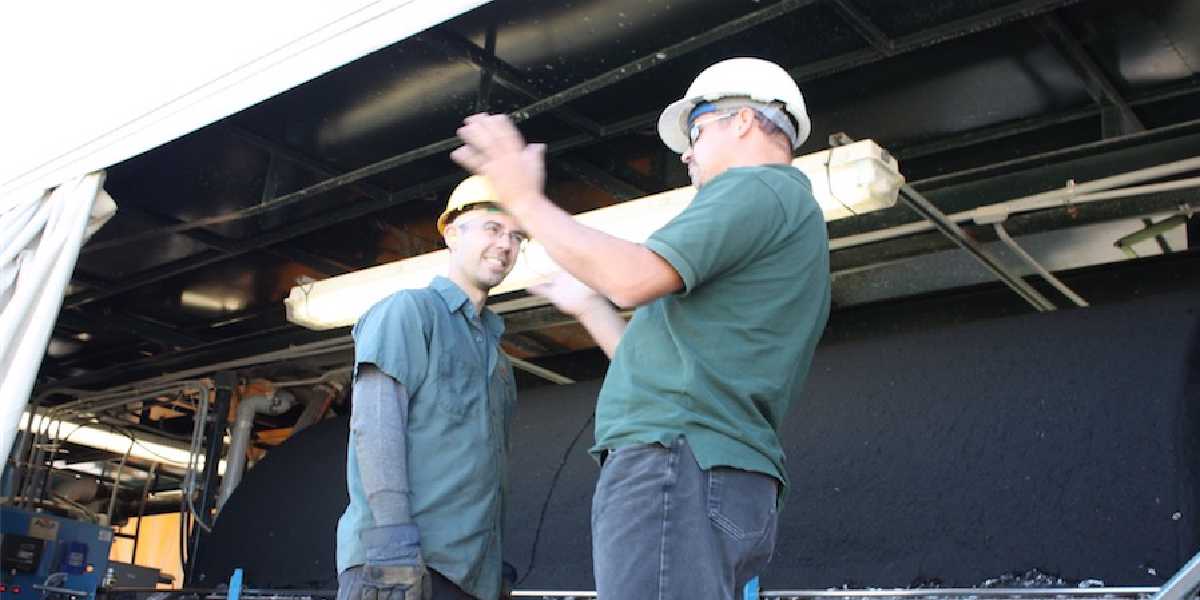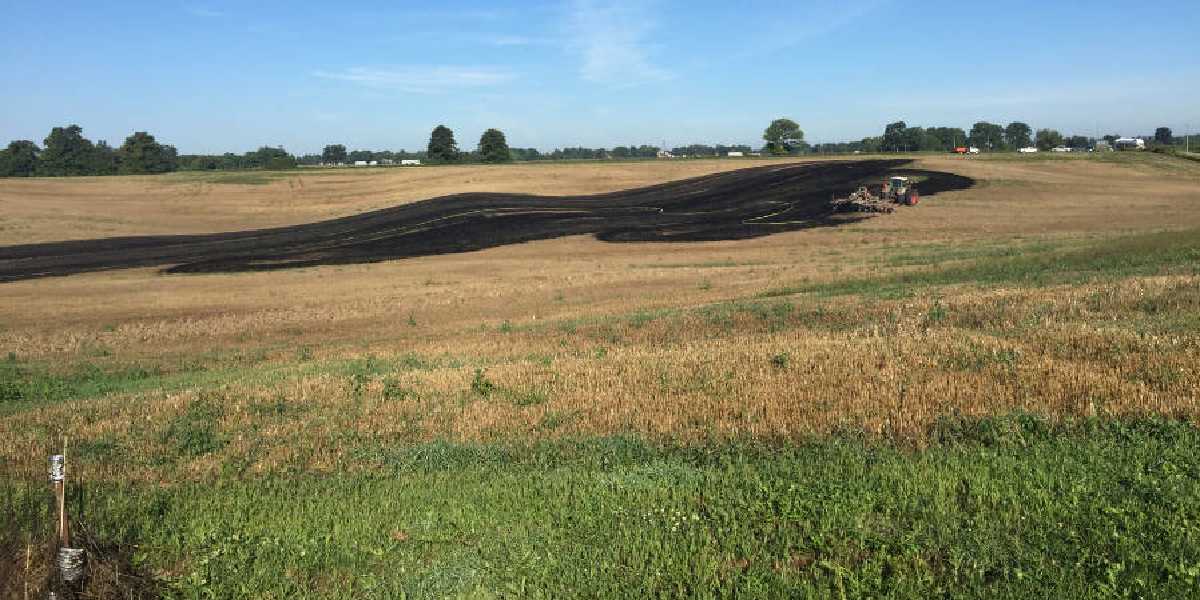Get it done today!
Experience the difference experience can make. Whether it’s cleaning, inspecting, moving, or reusing material. We get it done.
Let's do itLegends tell of brave men and women, who faced the darkness of the sewer and the tank, and were victorious. Those seeking their knowledge are best to scour the posts below.
What Is Inflow & Infiltration? Inflow & Infiltration (or I & I for short) is the process of water seeping into underground infrastructure. When unwanted water begins filling pipe...
At Wessuc, we place the safety of our team and those around us above all else. Every project we do, no matter how small, is executed with safety first mindset from start to finish. It only t...
We suck. We’ve been doing it for over 20 years. Whether it’s getting a tank to process more efficiently, or a simple wet well pump station cleaning or inspection, Wessuc can assist your team...
Non-invasive pipe inspection can save you headaches and cash in the long run. Why Inspect? Inspecting your infrastructure can maximize your system performance and prevent erosion. When is it...
Emergencies happen. Even in the most organized, well-maintained and meticulously prepared operations. You can’t predict when an emergency is going to happen, but knowing who to call when tro...
Effluent from dairy processing plants can be harmful to the environment, noxious to neighbours and expensive to manage. Examining your systems, thinking creatively about your processes and s...
Food processing and manufacturing is responsible for 43 per cent of avoidable food waste in Canada, costing food manufacturers a whopping $49.5 billion a year. If you’ve been wondering how y...
The writing is on the wall for food and beverage manufacturers in Ontario: when it comes to waste, it’s going to cost more to continue with business as usual. From loss of competitiveness to...
If you’re in the food and beverage industry, you’re paying to deal with your effluent. You might have an over-strength agreement with your municipality. You might have the water trucked off ...
Cher Mereweather is the founder of Provision Coalition, a collaboration of 17 provincial and national agri-food associations that helps food and beverage companies create value, realize savi...
Waste is expensive for any business to manage. If your company produces wastewater as part of day-to-day operations, these questions will help you understand what you’re producing, how it’s ...
In a highly hazardous and competitive industry, safety is an investment that consistently delivers real benefits. A safe work environment helps to keep skilled employees on the job and keep ...
There are many misconceptions about Biosolids The most common misconception is that biosolids are just the dirty remains of “sludge water” that will make us sick if we ingest them, but this ...
Winter spreading of any nutrient source increases the chance of runoff; impacting the environment. Ideally nutrients are stored over the winter and spread during the growing season when they...
The Canadian Centre for Occupational Health and Safety notes that precautions must be made to make confined spaces safe before workers enter. For the workers who brave the hazardous conditio...
What better way to learn about biosolids management then to compare our processes and procedures at home to those abroad? Europe provides an excellent example of biosolids management tactics...
Dewatering in its simplest definition is the removal of water. This process is used in many industries but commonly referred to in construction and wastewater when water is separated from so...
Harvest season is soon to be upon us in southern Ontario! Dust will be flying as growers race to harvest their crops at the optimal time. Shortly after harvest, planning and planting for nex...
The Nutrient Management Act (NMA) outlines its purpose “to provide for the management of materials containing nutrients in ways that will enhance protection of the natural environment and pr...
NEWS RELEASE – Brantford, Ontario Wessuc, a leader in waste stream solutions, is pleased to introduce the Turning Organic Waste into Value. The free 10-page guide is a three step self-audit ...
It seems new subdivisions continue to pop up throughout southern Ontario. As the population continues to increase, and before more homes are built, additional water and sewer infrastructure ...
Proper Wet Well Maintenance Contributes to Sewer System Health and Decreases Risk of Sewer Backups and Associated Environmental and Economic Costs Wet well maintenance is essential. Any numb...
Soils are more important to us than we realize, but they are often taken for granted. Around the world, farmers strive for sustainable, productive agricultural soils. In 2015, we celebrated ...
In the province of Ontario how do we manage excess soil? Over 25 million m3 of excess soil needs to be managed each year in Ontario. In 2014 the province issued a Best Management Practice to...
Many manufacturers will be quick to highlight the features and benefits of their technology over a competitor’s. Whether it is % solids achievable, polymer dosage required, throughput ...
Looking to Purchase a new Hydro Excavator this year? New regulations came into effect in Ontario as of July 2017 which have changed how and what can be used on Ontario roads, along with who ...
Best-in-Class Mechanical Dewatering Methods Depending on what industry you’re in the term “dewatering” can mean different things. Construction site dewatering typically ref...
Given the rising costs of energy in our province, it is important that aeration tanks that process waste water run as efficiently as possible. Whether at the municipal or industrial level, i...
It frequently amazes our clients how the Wessuc team is able to clean tanks and haul away waste materials so quickly using our vacuum trucks. However, there are many benefits to using vacuum...
Proper cleaning of storage and processing tanks is essential for efficient and safe operation. Over time, these tanks can get build up dirt and debris, decreasing the tank volume and causing...
The process of solids capture is a cornerstone of waste management productivity for innumerable reasons. Some people within the agricultural and environmental industries may already be aware...
In June 2016, the Ontario Government passed the New Waste-Free Ontario Act. This new legislation hopes to create “a circular economy where we have zero waste and zero greenhouse gas emission...
Experience the difference experience can make. Whether it’s cleaning, inspecting, moving, or reusing material. We get it done.
Let's do it